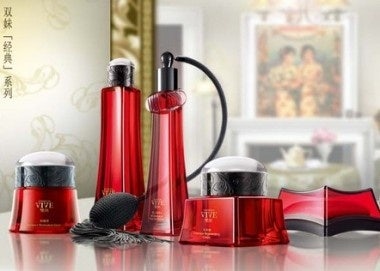Higher Prices Continue To Push Consumers To Shop Online Or Overseas#

One of the major topics of discussion in China's luxury market last year was Beijing's "will-they-or-won't-they" attitude towards lowering the country's notoriously high luxury taxes. Along with better customer service and wider inventory, mainland Chinese luxury taxes -- which can tack anywhere from 20 to 40 percent onto the price of imported luxury goods -- has been a key factor in pushing the country's outbound travelers to shop abroad or on Hong Kong shopping jaunts. But despite heated debate last spring and summer, and the input of high-profile advocates of luxury tax abolition, such as Dalian Wanda chairman Wang Jianlin and the Chinese Ministry of Commerce, the only progress seen by the end of 2011 was a vague assurance by Beijing that import taxes would be reduced for 730 consumer products, including high-end cosmetics, cigarettes and liquor.
However, as China Joint Business News (中国联合商报) reports this week, moves to lower import taxes for high-end cosmetics have had little effect, as price increases of anywhere from 5-15 percent by the brands themselves have outpaced tax reductions (which averaged a weak 4.4 percent). From the article (translation by Jing Daily team):
Recently, rising prices have spread from luxury cosmetics into mid-range lines. Industry insiders explain that the tax reductions have had only a negligible effect given the current round of price adjustments.
After the start of the new year, major cosmetic brands ushered in major price increases. This reporter learned that, at Beijing shopping malls, cosmetic brands like Chanel and SK-II have increased prices dramatically. In the wake of this latest price increase, many consumers have expressed confusion. "Why is it that even after taxes were lowered, cosmetic prices have shot up?" said one, while another exclaimed, "When are domestic brands going to be able to end foreign brands' power to set prices?"
At the end of 2011, after several rounds of discussions between the Ministry of Finance, the Ministry of Commerce and the State Administration of Taxation, China's "luxury" cosmetics and skincare category had import tariffs reduced from 10 percent to 4.4 percent, but the luxury tax duty and VAT were kept the same.
Industry experts estimate that the tax cuts might not be enough to significantly lower prices. As deputy director of the Chinese Institute of Fiscal Science, Liu Shangxi notes, "As long as enthusiasm towards foreign luxury goods remains high among Chinese consumers, lower taxes won't mean lower prices. On the contrary, profit margins among luxury brands will expand." This view coincides with recent Wall Street Journal reports that Estee Lauder's second-quarter profits rose 15 percent on higher-than-expected holiday sales.
At the same time, industry commentators note that the number of home-grown high-end consumer brands in China is relatively small, which makes large foreign brands even more emboldened to increase prices.
As the Ministry of Finance announced last December, the provisional tax rates for imported skincare products have been reduced from 6.5 percent to 5 percent, yet the country still imposes a consumption tax of 30 percent as well as a 17 percent VAT. For a given imported cosmetic product with a duty-paid price of 1,000 yuan, after-tax prices in China would be 1,780.07 yuan. With a 5 percent tax cut, it'd still be 1,755, a difference of only 25.07 yuan -- hardly significant at all.
Consumer frustration with rising high-end cosmetic prices is fueling urgency among domestic brands to develop lines that can compete with the likes of Shiseido, Estee Lauder and SK-II. However, these brands remain thin on the ground in China, with only Shanghai VIVE (previously on Jing Daily) and the newly founded BYKL promoting themselves as the country's premier high-end cosmetic lines. Whether their traditional Chinese ingredients, high price tags, and luxury packaging will be enough to convert devoted fans of Japanese and European brands is the question at the moment. But if these imported brands keep raising prices with no corresponding tax reductions from Beijing, we may see a shift sooner than many would think.
